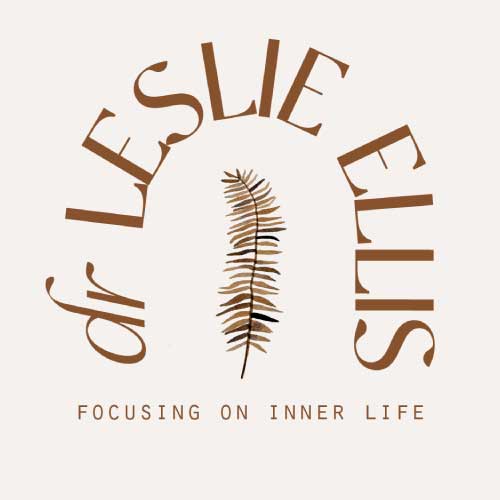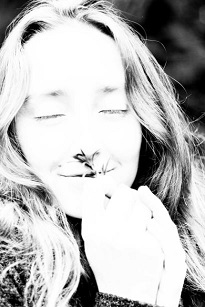A podcast review by Dr. Leslie Ellis
The main reason people don’t sleep is that they have a bad relationship with dreaming. – Dr. Rubin Naimin
I was so inspired by a recent conversation between Nikos Patedakis and Dr. Rubin Naiman on the Dangerous Wisdom podcast, I want to share some of their surprising and inspiring ideas —such as how befriending dreams can be the key to getting a good night’s sleep.
Sleep and dreaming are a different, and wider form of consciousness than waking. Many with sleep troubles fear falling into sleep and dreams because it means letting go of our accustomed waking state and the sense of self that comes with it, according to Naiman, a psychologist, author, Fellow in the American Academy of Sleep Medicine and clinical assistant professor of medicine at the University of Arizona’s Andrew Weil Center for Integrative Medicine.
We need to change how we think about sleep
Naiman consults internationally about sleep and dreams and believes patients with sleep problems are thinking about sleep in the wrong way. “The statement, ‘I can’t sleep’ makes no sense… because the presumption is that the part of me that I call ‘I’, the waking self, should be able to sleep, and it can’t. That’s where people get stuck, they try leverage waking to get to sleep.” In fact, our very efforts to fall asleep tend to engage our waking selves more deeply.
So how does he suggest we descend into sleep then? It’s more of an accident than a deliberate effort, and it takes a willingness to descend into a different state where our sense of self and ego are not as central, and there is a greater breadth of consciousness available. Naiman said that over the previous few decades, our collective consciousness has shrunk, in part a product of spending more time narrowly focused, indoors, and looking at various screens rather than the natural world. So when we begin to fall asleep, and dreaming begins to widen our horizons, we may feel overwhelmed.
Naiman said: “Sleeping and dreaming both require a fundamental willingness to allow consciousness to expand, but this may be something many are not comfortable with. A contraction of consciousness allows for the kind of focus essential to survival in the waking, material world. The problem is that if we stay there, we think that’s all there is.” He goes on to lament the current epidemic of sleep loss, which he says is actually dream loss, and that attention to dreaming is a glaring omission in modern sleep medicine.
“The main reason people don’t sleep is that they have a bad relationship with dreaming.” Naiman cites evidence that when those with sleep troubles are first letting go into the kaleidoscope of dreams and a dissolution of waking consciousness, they react to that “as if it were a stampede coming from the horizon.”
Psychedelics as an appetizer for expanded consciousness
Dreaming is a different order of consciousness, one that is both feared and repressed, but also sought after. Because we are being deprived of the mind-expanding properties of dreaming, we hunger for it. Naiman says this may be why there is such a resurgence of interest in psychedelics: “We have forgotten how to expand consciousness through sleep and dreams, so it makes sense we are fascinated that a molecule or mushroom can do that. I’m not opposed to that, but these are the appetizers, not the main course.”
Patedakis views mind-altering substances as a bridge but not the final destination: “You need to learn what your mind can do. And then you need to learn how to do it within yourself.” Both speakers advise proceeding gradually into wider ways of seeing and being because plant medicine can bring overwhelm and disorientation to those not prepared for a direct experience of expanded consciousness. As a culture, we have been taught to fear or dismiss such things.
Academic focus on the material world ‘distorts and impoverishes’ our self-understanding
Naiman quotes Gary Schwartz and a group of scholars lamenting the nearly absolute dominance of the material over the subjective in academic study. This has “led to a severely distorted and impoverished understanding of ourselves and our place in nature.”
Even those who practice mindfulness and other potentially consciousness-shifting activities often do so to become better in their waking life. They want to know what their dream means so they can apply it to their personal situation, missing entirely that dreaming reflects a much larger perspective, one that takes us beyond ourselves into a wider, more spiritual realm.
Dreaming as antidepressant
Naiman also speaks of the psychological importance of dreaming. “It processes, sifts, digests and assimilates waking experience. If we are not dreaming, we’re not assimilating, and we’re not being nourished by our waking experiences.” This could explain the well-known link between dream loss and clinical depression. Ironically, the medications to treat depression erode dreaming even further because most antidepressants suppress REM sleep.
The answer to the epidemic of depression and sleep loss, according to Naiman, is not to medicate the problems but to turn toward our dream lives and allow them to help us become more comfortable with a wider sense of who we are. “If we have a better relationship with the dream world, we definitely sleep better,” says Naiman.
Expanding Liminal Space, Extending Sleep
Building a bridge between waking and sleeping by dwelling in the in-between, the gradual transformation inward as night falls, is a natural way to drift into sleep. “In nature, sleep actually starts when the sun goes down and there is a beautiful, gradual transformation of consciousness through dusk, and also again through dawn.” Naiman suggests that we surrender to the night and to the dark, allow it to naturally expand our consciousness, and view it neither as inferior nor applicable to waking life. In fact, sleep and dream life is the larger vessel in which the narrower consciousness of waking is contained.
Below are the links to both Nikos’ interview with Rubin Naiman, as well my conversation with Nikos on experiential approaches to dreams (which is referred to in this interview).
Rubin’s podcast episode: https://dangerous-wisdom.captivate.fm/episode/recovering-sleep-and-dreams
Rubin’s YouTube link: https://www.youtube.com/watch?v=X_E4tyFw-8c
Leslie’s podcast episode: https://dangerous-wisdom.captivate.fm/episode/attending-to-our-dreams-dialogue-with-dr-leslie-ellis
Leslie’s YouTube link: https://www.youtube.com/watch?v=7NyYEd3neIg
References
Naiman, R. (2017). Dreamless: the silent epidemic of REM sleep loss. Annals of the New York Academy of Sciences, 1406(1), 77-85.
For more on experiential dreamwork for clinicians, visit www.drleslieellis.com


